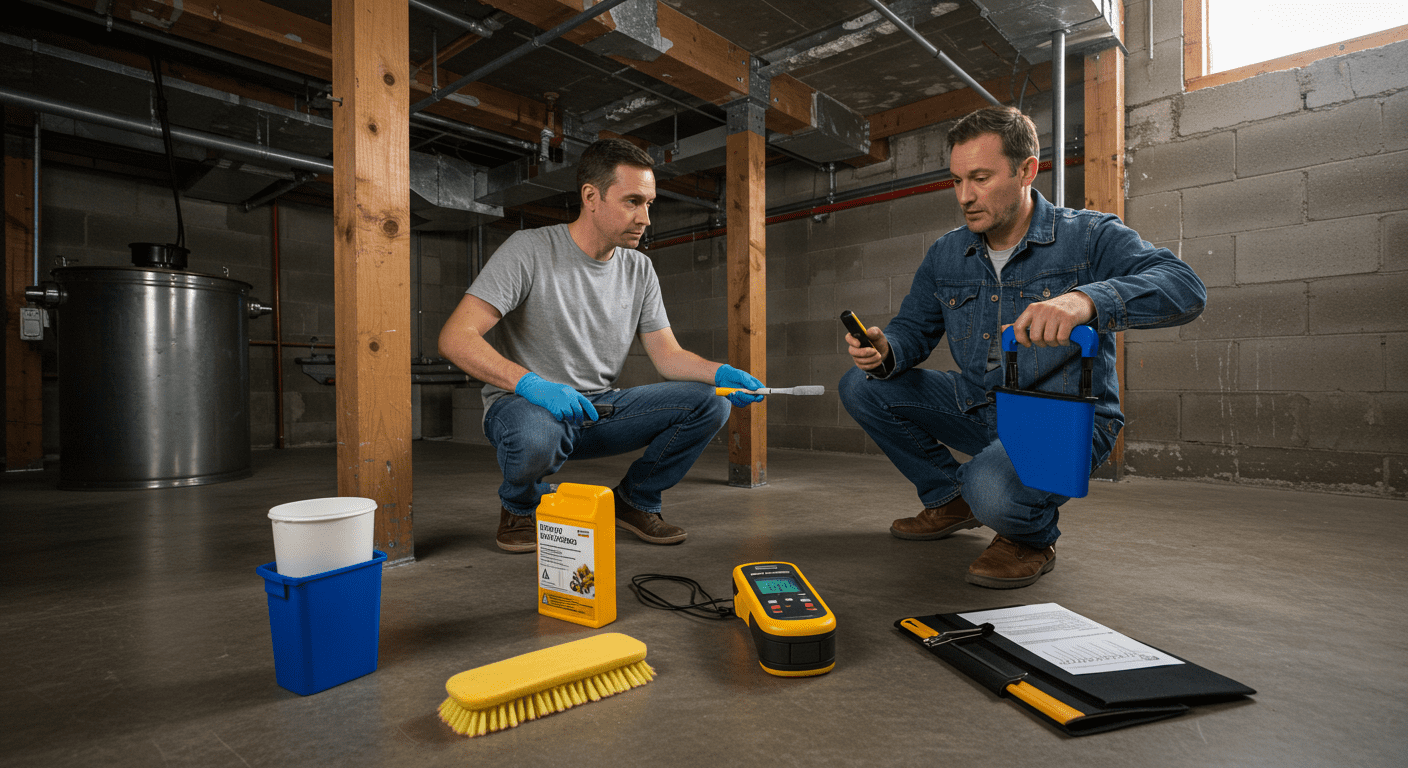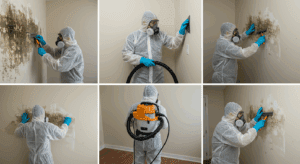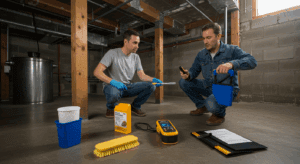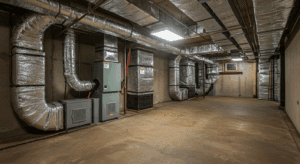Fungus growth in homes is a common issue, especially in areas like Elkhart, IN, where humidity levels can create the perfect environment for mold and mildew to thrive. Left unchecked, household fungus can lead to structural damage and pose serious health risks. This guide will help you understand, prevent, and address fungus in your home, ensuring a safe and healthy living environment.
Understanding Fungus in Homes
What is Household Fungus?
Household fungus refers to various types of mold and mildew that grow in damp, humid environments. These fungi thrive on organic materials such as wood, drywall, and carpets, feeding on moisture and nutrients. Common examples include black mold (Stachybotrys chartarum), white mold, and mildew. While some fungi are harmless, others can cause significant damage and health issues.
Common Types of Fungus Found in Elkhart Homes
Elkhart’s climate, with its seasonal humidity, makes homes susceptible to several types of fungus. Black mold is one of the most notorious, often found in areas with persistent moisture, such as bathrooms and basements. White mold, which appears powdery and can grow on wood and fabrics, is another common culprit. Mildew, typically found on shower tiles and windowsills, is easier to clean but still requires attention to prevent spreading.
For more insights on effective mold removal strategies, check out Effective Strategies to Kill Black Mold in Elkhart, IN: Your Ultimate Guide.
Health Risks Associated with Fungus
Symptoms of Fungus Exposure
Exposure to household fungus can lead to a range of health issues, particularly for individuals with allergies or respiratory conditions. Symptoms include coughing, sneezing, skin irritation, and watery eyes. Prolonged exposure to toxic molds, such as black mold, can result in more severe health problems, including chronic respiratory issues and neurological symptoms.
Vulnerable Populations: Who is at Risk?
Certain groups are more vulnerable to the effects of fungus exposure. Infants, elderly individuals, and those with compromised immune systems are at higher risk of developing health complications. People with asthma or allergies may also experience heightened symptoms when exposed to mold. Ensuring a fungus-free home is crucial for protecting these at-risk populations.
To learn more about safe and effective mold remediation, visit Expert Cleaning Fungus Solutions in Mishawaka, IN: Safe and Effective Mold Remediation.
Preventing Fungus Growth in Your Home
Importance of Moisture Control
Moisture is the primary factor that allows fungus to grow. Leaky pipes, poor ventilation, and high humidity levels create the perfect conditions for mold to thrive. Addressing these issues promptly can significantly reduce the risk of fungus growth in your home.
Effective Strategies for Humidity Management
Managing humidity is key to preventing fungus. Use dehumidifiers in damp areas like basements and bathrooms, and ensure proper ventilation in kitchens and laundry rooms. Regularly inspect your home for leaks and repair them immediately. Additionally, using mold-resistant paint and materials can provide an extra layer of protection.
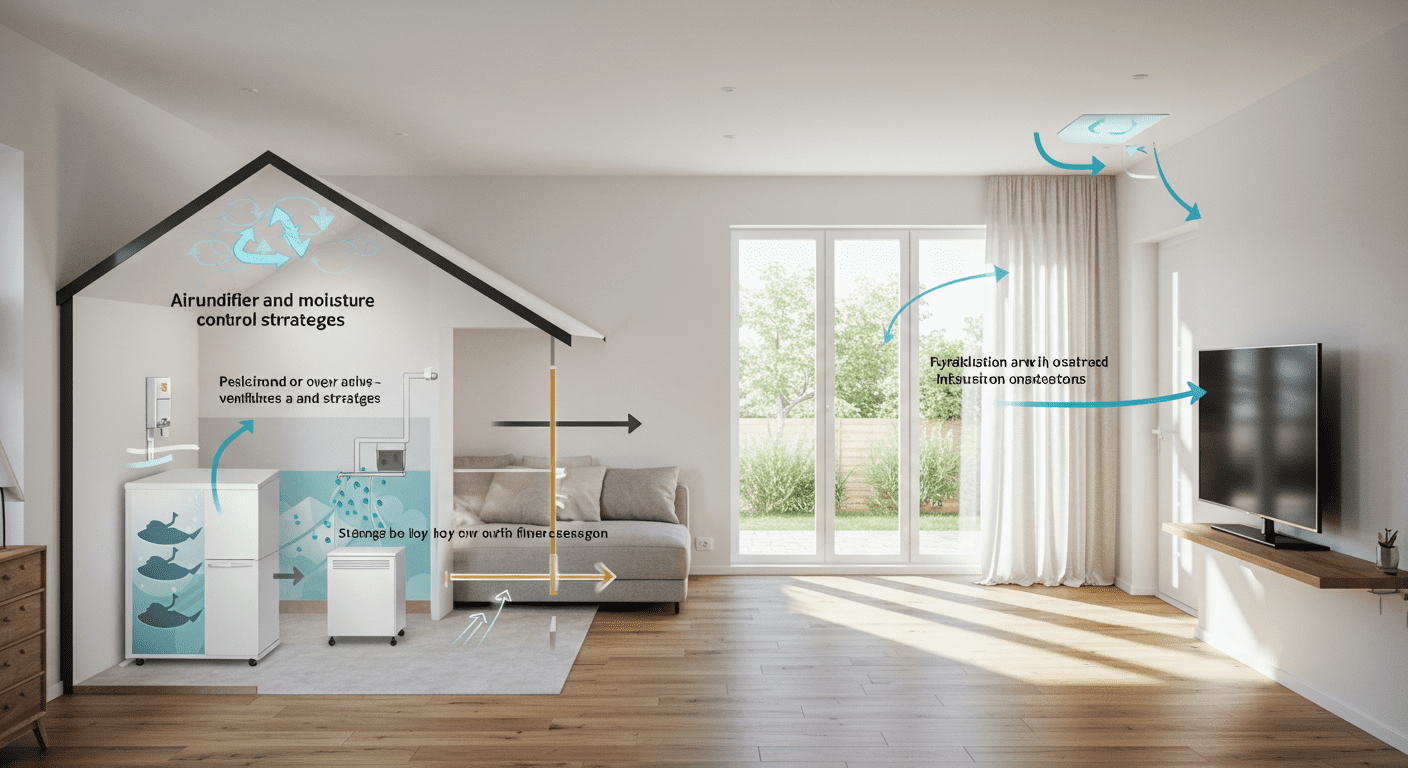
For more tips on mold prevention, check out Effective Home Mold Remedies in Elkhart, IN: Your Ultimate Guide to Mold Prevention and Removal.
Fungus Remediation: When to Call Professionals
Signs You Need Professional Help
While minor mold issues can often be addressed with DIY methods, certain situations require professional intervention. If you notice extensive mold growth, a persistent musty odor, or recurring mold despite cleaning efforts, it’s time to call in experts. Professionals have the tools and expertise to identify and eliminate mold at its source.
Overview of the Mold Remediation Process
The mold remediation process typically involves several steps, starting with an inspection to assess the extent of the problem. Next, professionals contain the affected area to prevent spores from spreading, remove contaminated materials, and clean and disinfect surfaces. Finally, they address the underlying cause, such as repairing leaks or improving ventilation, to prevent future growth.
For 24/7 emergency assistance with mold remediation, visit Expert Water Leak and Mold Remediation Services in Elkhart, IN.
Conclusion
Fungus in your home is more than just an inconvenience—it can pose serious risks to your health and property. By understanding the causes and types of household fungus, taking proactive steps to prevent its growth, and knowing when to seek professional help, you can protect your home and loved ones. Whether you’re dealing with a minor mildew problem or a severe mold infestation, the key is to act quickly and effectively. Stay vigilant, and your home in Elkhart, IN, will remain a safe and healthy environment for years to come.

